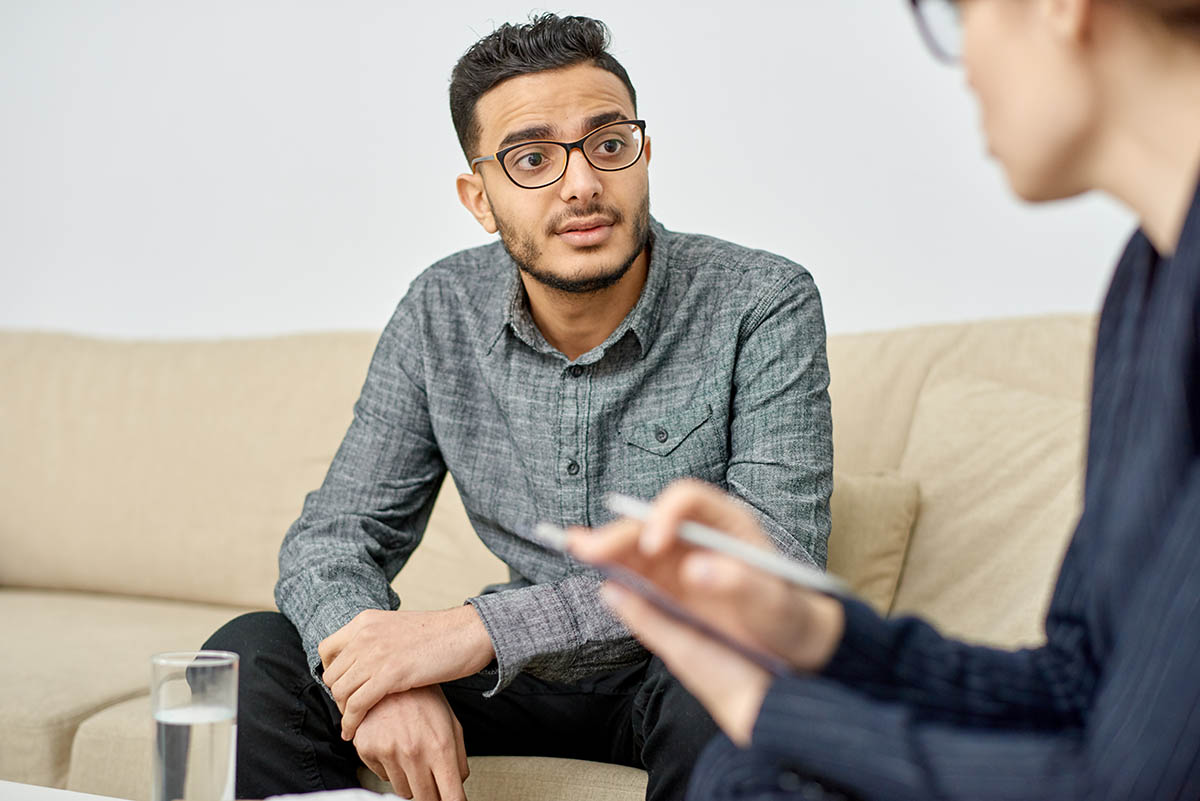If you or someone you care about is struggling with misusing opioids, it’s essential to seek professional help immediately and look into opioid addiction treatment options.
It may not be easy to tell when someone is struggling with addiction, especially if the substance use disorder (SUD) is in its early stages. Perhaps you’ve noticed changes in your or your loved one’s moods or behavior. Maybe your intuition is telling you that there’s a problem that needs to be solved soon. Even if you can’t put your finger on anything specific, it’s worth it to listen to your instincts. Speaking up or seeking professional help could save your life or the life of someone dear to you. Are you looking for an opioid addiction treatment program in Florida? Contact Gulf Breeze Recovery Center today by calling 833.551.2304 or reaching out to our team online.
What Are the Signs of Opioid Addiction?
It may surprise you to find out that people struggling with misusing opioids may initially still be able to function well in school, at work, or maintain other important relationships, responsibilities, and routines. However, over time they’ll likely find that addiction disrupts their day-to-day functioning.
Common signs of opioid addiction include the following:
- Regularly taking opioids in ways not intended by prescribing doctors
- Experiencing mood changes, including excessive swings from elation to hostility
- Changing sleep patterns
- Borrowing medication from other people
- “Losing” medications so that more prescriptions must be written
- Doctor shopping or seeking the same prescription from multiple doctors
- Poor decision-making
What Are Some Treatment Options for Opioid Addiction?
1. Harm Reduction
Harm reduction is an approach to helping clients struggling with SUDs and is often one of the first interventions recommended for opioid addiction treatment. Harm reduction focuses on reducing the physical and social harms that affect clients struggling with opioid addiction rather than focusing on encouraging them to quit.
This approach is especially helpful for clients who inject opioids. It includes strategies such as needle exchange programs and safe injection sites. Harm reduction saves the lives of clients who would otherwise die of blood-borne infections such as human immunodeficiency virus (HIV) and hepatitis, as well as opioid overdose.
2. Opioid Substitution Therapy (OST)
Another common treatment option for opioid addiction is opioid substitution therapy (OST), sometimes called opioid replacement therapy. It’s considered a form of medication-assisted treatment (MAT), too. This is an evidence-based intervention for clients struggling with opioid addiction that replaces illicit drug use with medically prescribed, orally administered opiates such as buprenorphine and methadone.
Clients who are prescribed buprenorphine or methadone while in rehab are not simply switching to another drug they’ll become dependent on. Rather, they are using an effective treatment prescribed by a qualified medical professional.
Naltrexone is another medicine that can be used in MAT for participants of opioid addiction treatment programs. It completely blocks opioid receptors and prevents the high that those to take opiates generally experience. However, naltrexone is used less frequently than other similar treatments.
3. Psychological Treatment
In recent decades, psychological treatments connected to rehab have become more sophisticated. The approaches focus on every stage of overcoming addiction, and rehab programs that use psychotherapy are typically customized for each client. The types of psychological treatment that are commonly used in rehab include the following:
- Motivational interviewing (MI) and motivational enhancement therapy — Motivation is one of the most essential psychological predictors of effective treatment for opioid addiction. If a client is not motivated to quit opioids, they are at a high risk of relapse, which, in turn, puts them at a greater risk of death by overdose.
- Cognitive-behavioral therapy (CBT) — This type of psychotherapy is one of the most effective treatments for opioid use disorder. It’s also a highly effective treatment for other SUDs and other mental health disorders, including anxiety disorders and clinical depression, all of which can co-occur with opioid addiction.
- Family therapy or couples counseling — Family therapy can help family members of clients provide the support their loved one needs, as well as learn better communication habits that can lead to better conflict resolution practices. Couples counseling, sometimes also called marital therapy, can also be an essential part of a rehab program for someone struggling with opioid addiction. It is helpful for couples who wish to stay together during and after addiction recovery, as well as for those who choose to separate.
- Hypnotherapy — This is a type of psychological therapy involving naturally occurring mental states and therapeutic suggestions that are designed to help clients think differently about the concept of change. Hypnotherapy uses hypnosis to help clients access mental states ethically and responsibly.
- 12-step facilitation — This is a strategy built on the premise that involvement in a mutual support group like Alcoholics Anonymous (AA) can help clients to achieve and maintain lifelong abstinence.
When Should You Consider an Opioid Addiction Treatment Program?
If you or someone you care about is struggling with misusing opioids, you should definitely consider getting professional help. While addiction may not yet be affecting day-to-day functioning, it eventually will disrupt all aspects of health—behavioral, emotional, physical, mental, financial, and even social. It is not advised that an individual attempt to stop opioid abuse on their own, and doing so can cause serious, uncomfortable, and potentially life-threatening withdrawal symptoms. The best and safest way to begin your recovery journey is in an addiction treatment center.
Learn More About Gulf Breeze Recovery Center’s Opioid Addiction Treatment Program
If you’re searching for an opioid addiction treatment program in Florida, contact Gulf Breeze Recovery Center today. Call 833.551.2304 or reach out to our team online. We can help.







